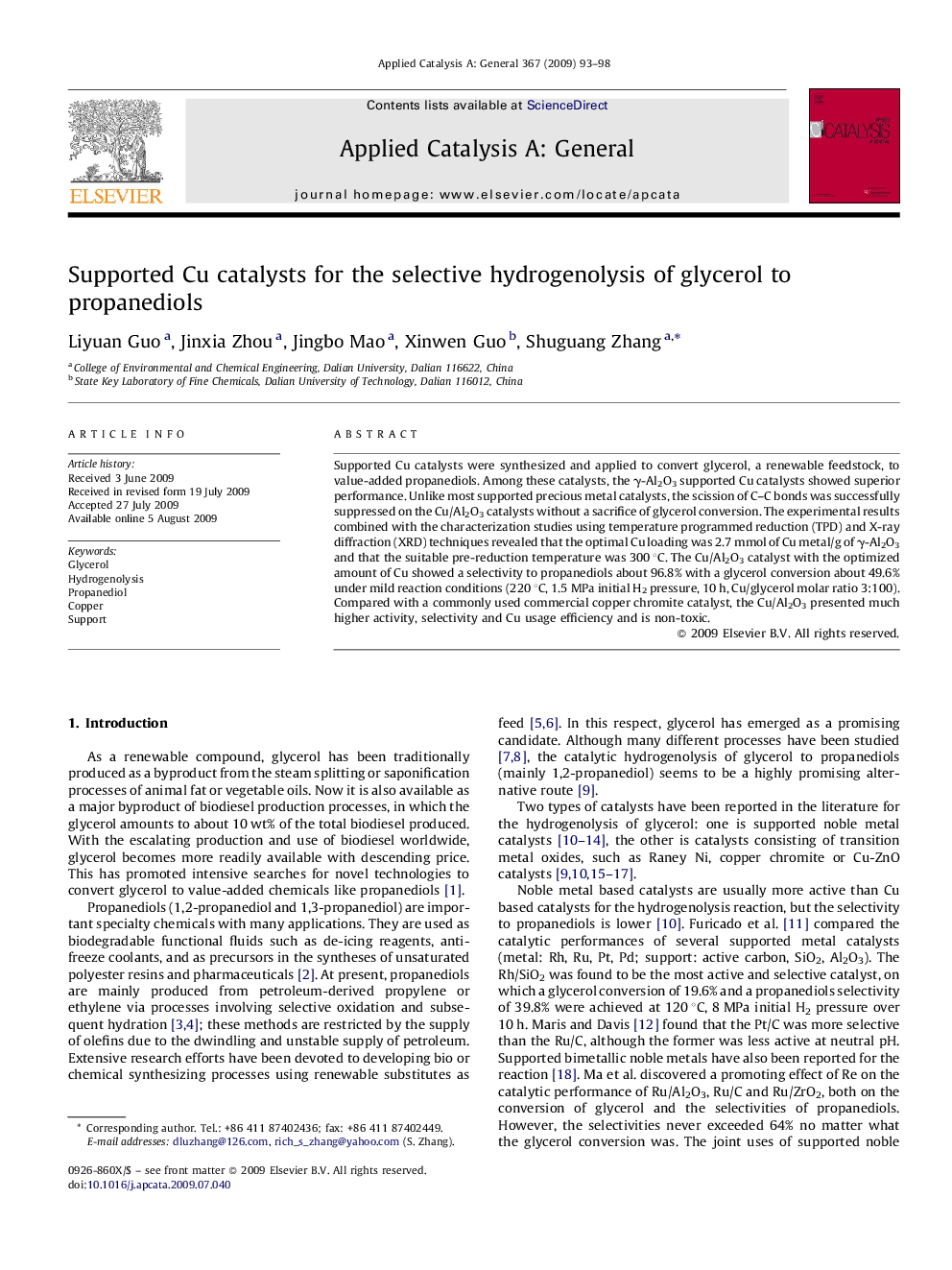| Article ID | Journal | Published Year | Pages | File Type |
|---|---|---|---|---|
| 42437 | Applied Catalysis A: General | 2009 | 6 Pages |
Supported Cu catalysts were synthesized and applied to convert glycerol, a renewable feedstock, to value-added propanediols. Among these catalysts, the γ-Al2O3 supported Cu catalysts showed superior performance. Unlike most supported precious metal catalysts, the scission of C–C bonds was successfully suppressed on the Cu/Al2O3 catalysts without a sacrifice of glycerol conversion. The experimental results combined with the characterization studies using temperature programmed reduction (TPD) and X-ray diffraction (XRD) techniques revealed that the optimal Cu loading was 2.7 mmol of Cu metal/g of γ-Al2O3 and that the suitable pre-reduction temperature was 300 °C. The Cu/Al2O3 catalyst with the optimized amount of Cu showed a selectivity to propanediols about 96.8% with a glycerol conversion about 49.6% under mild reaction conditions (220 °C, 1.5 MPa initial H2 pressure, 10 h, Cu/glycerol molar ratio 3:100). Compared with a commonly used commercial copper chromite catalyst, the Cu/Al2O3 presented much higher activity, selectivity and Cu usage efficiency and is non-toxic.
Graphical abstractSupported Cu catalysts were synthesized to convert glycerol to propanediols. The Cu/Al2O3 catalyst with 2.7 mmol Cu/g γ-Al2O3 presented a 96.8% selectivity to propanediols with a 49.6% glycerol conversion under mild reaction conditions (220 °C, 1.5 MPa initial H2 pressure, 10 h, Cu/glycerol molar ratio 3:100). Compared with a commercial copper chromite, the Cu/Al2O3 is more active and selective.Figure optionsDownload full-size imageDownload as PowerPoint slide
